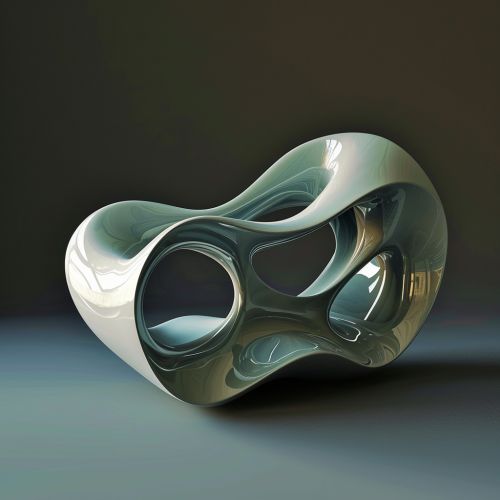Smooth Manifold
Definition
A Smooth Manifold is a type of manifold that is equipped with a differentiable structure. It is a basic concept in the field of differential geometry and topology. In simple terms, a smooth manifold is a mathematical space where, in the vicinity of every point, the environment is identical to the Euclidean space of a certain dimension, called the dimension of the manifold.
Structure
The structure of a smooth manifold allows for the application of concepts from calculus to be applied. This is achieved by the introduction of a differentiable structure. A differentiable structure on a manifold M is a maximal atlas for M whose transition maps are all differentiable. An atlas is a collection of charts, where a chart is a homeomorphism from an open subset of the manifold to an open subset of a Euclidean space.
Differentiability
Differentiability on a smooth manifold is defined in terms of differentiability on Euclidean space. If M is a smooth manifold and f is a function that maps M to the real numbers, then f is said to be differentiable if for every chart (U, φ) in the differentiable structure, the composition of f with the inverse of φ is a differentiable function from the Euclidean space to the real numbers.
Tangent Space
At each point of a smooth manifold, there is a vector space called the tangent space at that point. The tangent space at a point of a smooth manifold encapsulates the directions in which one can 'tangent' at that point. Formally, the tangent space can be defined in several equivalent ways: as the dual space to the linear space of all differentiable functions defined on the manifold which vanish at that point, or as the set of all derivations at the point.
Smooth Maps
A function or map between two smooth manifolds is called a smooth map or a differentiable map if it has continuous derivatives of all orders. More precisely, a function f from a smooth manifold M to a smooth manifold N is called smooth if, for every chart (U, φ) in the differentiable structure of M and every chart (V, ψ) in the differentiable structure of N, the map ψ ∘ f ∘ φ^−1 from the Euclidean space of M to the Euclidean space of N is smooth whenever f(U) and V intersect.
Examples
Examples of smooth manifolds include the Euclidean space itself, the n-sphere (the boundary of an (n+1)-dimensional ball), and the n-torus (the Cartesian product of n circles). Other examples include the real projective space, the complex projective space, and the Grassmannian manifolds.
Properties
Smooth manifolds have various properties that make them suitable for the study of topics such as differential topology, differential geometry, and algebraic topology. For instance, every smooth manifold has a de Rham cohomology, which is a fundamental tool in these fields.
See Also


